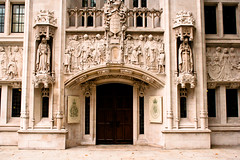Tobacco advertising challenges
The Public Health (Tobacco) Act, 2002 (also here), as amended in 2004 (also here) – and in particular Part 3 of the 2002 Act – constitute a comprehensive control on the sale and advertising of tobacco (the Office of Tobacco Control has a comprehensive list of the relevant legislation), and the legislation largely gives effect to EU law in this field. In particular, Section 33 of the 2002 Act as amended by section 5 of the 2004 Act prohibits advertising of tobacco products and section 43 of the 2002 Act as amended by section 14 of the 2004 Act requires vendors to ensure that tobacco products are kept in a closed container that is not visible or accessible to customers. These and related provisions were brought into force by the Public Health (Tobacco) Act 2002 (Commencement) Order 2008 (S.I. No. 404 of 2008) (also here) and took effect on 1 July of this year. Dublin solicitors Matheson Ormsby Prentice have a helpful description of the restrictions here. Now, today’s Sunday Times brings news that these prohibitions are to face a legal challenge in the Irish courts:
…Philip Morris sues Irish government on tobacco ban
Tobacco giant Philip Morris International is to launch a legal action against the Irish government over its ban on the display of cigarettes in shops.




